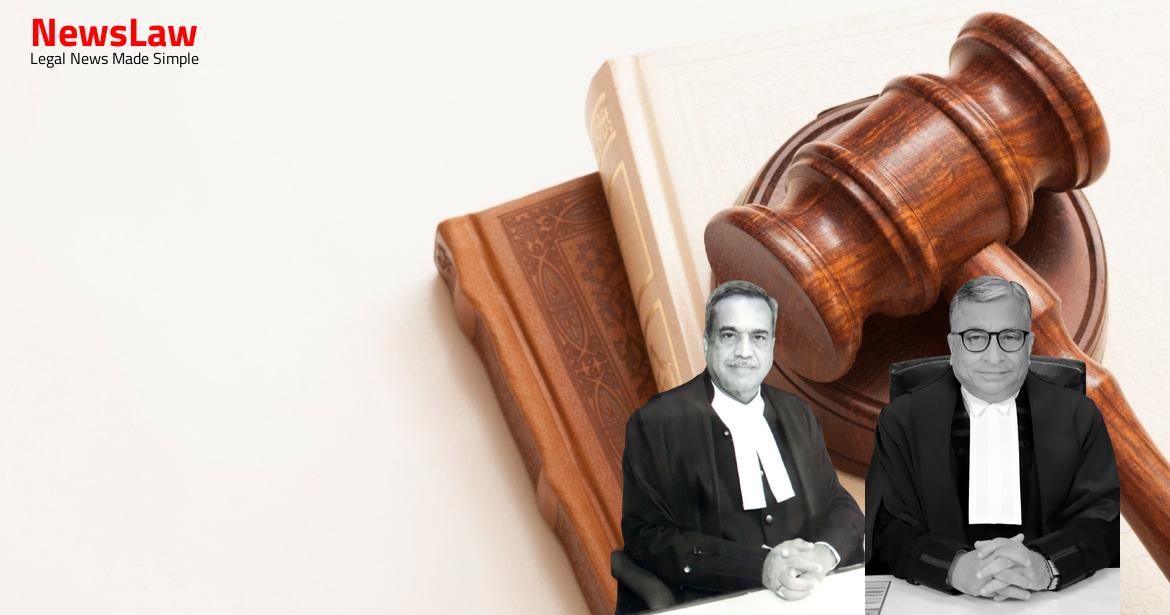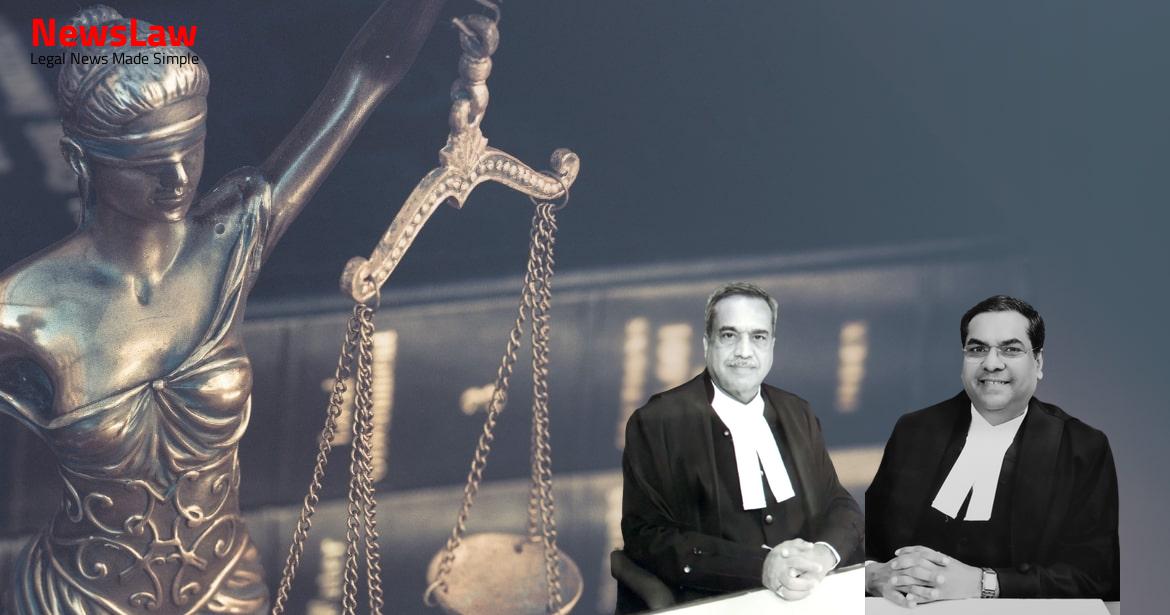Explore the critical legal examination of compassionate appointment cases in this blog post. The focus is on the court’s in-depth analysis of the legal principles surrounding compassionate appointments, shedding light on the complexities of such decisions. Stay tuned to unravel the legal dynamics at play in compassionate appointment rulings.
Facts
- State of Maharashtra is aggrieved with the judgment of Bombay High Court which dismissed the writ petition and confirmed the Tribunal’s order for the respondent’s compassionate appointment.
- The appeal has been filed by the State through the Principal Secretary, Water Resources Department.
- The Tribunal’s direction to appoint the respondent on compassionate grounds is the subject of dispute in this case.
- The elder sister of the respondent, Mrs. Sangita M. Thonge, applied for appointment on compassionate grounds but died while in service.
- After her death, the mother of the respondent was appointed on compassionate grounds.
- The respondent, a married daughter of the deceased employee, applied for appointment on compassionate grounds but her application was rejected.
- The respondent’s elder married sister’s application was also rejected earlier in 2011.
- The State Government issued a Circular in 2013 stating that employment could be provided to one of the legal heirs or representatives of the deceased government servant on compassionate grounds.
Also Read: Challenging Legal Presumptions in Negotiable Instrument Cases
Issue
- The Tribunal’s order allowing the O.A. and directing consideration of the respondent’s case for appointment on compassionate grounds was confirmed by the High Court.
- The main question before the Court is whether the respondent is entitled to appointment on compassionate grounds given the facts and circumstances of the case.
Also Read: Legal Analysis of Admission Irregularities in Educational Institutions
Analysis
- Compassionate appointment is meant to provide relief against destitution.
- The objective is to help the family overcome sudden financial crises.
- Compassionate employment is not meant to offer the same position held by the deceased.
- Compassionate appointments are usually in the lowest posts to alleviate financial burdens.
- The eligibility for compassionate appointment depends on the dependency of the applicant on the deceased employee.
- The law on compassionate appointments as laid down by the Court must be considered in the decision-making process.
- The rejection of the elder sister’s application for compassionate appointment was due to her marriage status, which ruled out dependency on the deceased mother.
- Compassionate appointment is an exception to the general rule of appointment in the public services, favoring the dependents of a deceased employee leaving his family in need.
- Appointment on compassionate grounds is not a source of recruitment but a means to assist the family in overcoming a sudden financial crisis.
- The financial condition of the deceased employee’s family must be evaluated based on the scheme’s provisions before considering compassionate appointment.
- No aspirant has a right to compassionate appointment, and it can only be granted based on the state policy’s norms and eligibility criteria.
- The appointment on compassionate ground should adhere to Articles 14 and 16 of the Indian Constitution for fair opportunity.
- Compassionate appointment offered to a dependent is an exception to the general norms of providing equal opportunity to all aspirants for government vacancies.
- Compassionate appointment is a concession, not a right, and should be considered based on the prevailing norms at the time of application.
- The objective of compassionate appointment is to aid the deceased employee’s family in overcoming a sudden crisis.
- The principles laid down in past judgments regarding appointment on compassionate grounds have been consistently followed in subsequent decisions.
- The judgment and order directing the consideration of the respondent for appointment on compassionate ground after a number of years is unsustainable.
- Even if considered, the respondent is not entitled to appointment on compassionate ground after a significant period from the death of the deceased employee.
- The Tribunal and the High Court erred in directing the appellants to appoint the respondent on compassionate ground, as per the circumstances and facts of the case.
Also Read: Quashing of Enhanced Tuition Fee in Private Medical Colleges
Decision
- Present appeal allowed
- No costs imposed
- Order passed by Maharashtra Administrative Tribunal in O.A. No 860 of 2015 quashed
- Impugned judgment and order passed by High Court dismissed
- Order passed by Tribunal set aside
Case Title: THE STATE OF MAHARASHTRA Vs. MADHURI MARUTI VIDHATE (SINCE AFTER MARRIAGE MADHURI SANTOSH KOLI) (2022 INSC 1057)
Case Number: C.A. No.-006938-006938 / 2022



